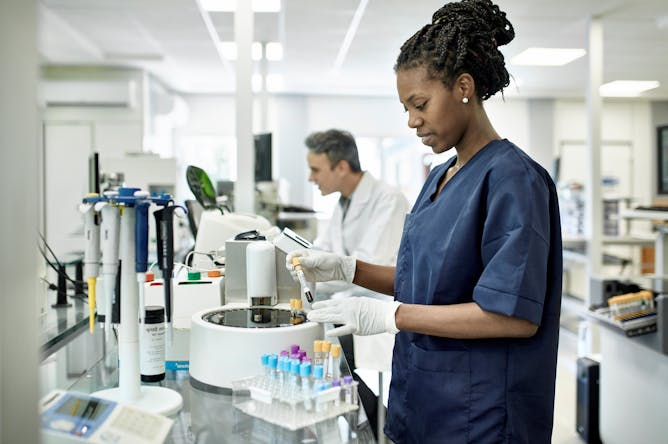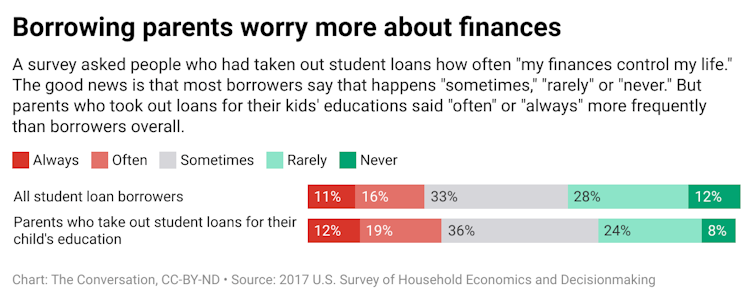|
|
|
|
Nearly every time Americans turn on the radio or television, we’re reminded of the dire circumstances health care professionals have been enduring throughout the pandemic: doctors and nurses facing unprecedented levels of stress and burnout, the difficult decisions made when triage care is needed and the heartache of treating COVID-19 patients, many of whom die in ICUs without loved ones by their sides. Rarely, though, do we get a glimpse into the world of the medical laboratory professionals who labor in the background but who are, in many ways, the beating heart of the U.S. health care system.
So when I received an email from Rodney E. Rohde, a professor of clinical laboratory science at Texas State University, on a Sunday over the holidays, pitching a story about the dangerous levels of staffing shortages in the medical laboratory field, it stopped me in my tracks – even in the grocery store.
In his resulting story, Rohde writes about how laboratory professionals in his field are being overwhelmed by a convergence of factors, from burnout and staffing shortages to COVID-19 infections keeping workers away from their jobs and preventing other personnel from taking time off. And with the omicron variant leading to record-breaking COVID-19 infections and hospitalizations, Rohde explains how the problem has grown far worse.
Also today:
|

|
Amanda Mascarelli
Senior Health and Medicine Editor
|
|

Thousands of physicians throughout the U.S. rely daily on the critical data provided to them by medical labs.
xavierarnau/E+ via Getty Images
Rodney E. Rohde, Texas State University
The health care system is hemorrhaging medical lab workers, in part because of COVID-19 infections and also because of burnout, low wages and better opportunities elsewhere.
|
Science + Technology
|
-
Sally Warner, Brandeis University
Tsunamis aren’t just bigger-than-average waves. Triggered by undersea earthquakes or volcanic eruptions like the one in Tonga, they are fast, massive and potentially destructive. Here’s why.
-
Eric Smalley, The Conversation
Sexual harassment and discrimination in gaming and tech are not inevitable or permanent, write experts in the field. The solutions are positive community standards and women in power.
|
|
Environment + Energy
|
-
Andrew Blakers, Australian National University; Bin Lu, Australian National University; Matthew Stocks, Australian National University
A team of researchers found 35,000 pairs of existing reservoirs, lakes and old mines in the US that could be turned into long-term energy storage – and they don’t need dams on rivers.
|
|
Education
|
-
Stephanie Holcomb, Rutgers University; Andrea Hetling, Rutgers University; Gregory Porumbescu, Rutgers University - Newark ; Vishal Trehan, Rutgers University - Newark
Claims the digital divide has been ‘closed’ don’t include the full picture of internet inequality in the United States.
|
|
Health + Medicine
|
-
Maureen Ferran, Rochester Institute of Technology
CORBEVAX is anticipated to significantly expand vaccine access to people in low- and middle-income countries.
|
|
Ethics + Religion
|
-
Mark Satta, Wayne State University
Shurtleff v. Boston, a case argued before the Supreme Court on Jan. 18, raises important questions about free speech and religion in public spaces.
-
Christopher Beem, Penn State
A scholar of democratic virtues explains why Dominican monk Thomas Aquinas’ thoughts on hope are relevant today.
|
|
|
|
Today's graphic 
From the story, Taking out a student loan for your child can hurt your own financial well-being Like this newsletter? You might be interested in our weekly emails:
|
| |
| |
| |
| |

|
| |
| |
| |
| |
| |
| |
|
|
|
|
|
|
|